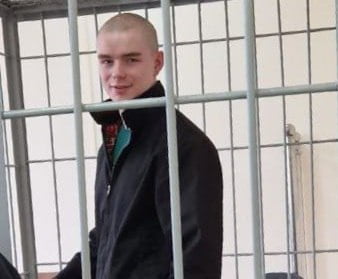The Turkish Cypriots have been protesting against Ankara over the past decade and the tensions between Ankara and Nicosia have increased due to the influx of settlers and Turkey’s policies towards northern Cyprus. The hopes for Turkish Cypriots to be reunited with Greek Cypriots also have been dashed. Today, Ankara’s waning enthusiasm for EU membership is undermining expectations for long-term peace on the split eastern Mediterranean island.
The Cyprus issue came to the fore in 1974, when a Greek Cypriot military coup that aimed to unite Cyprus with Greece led to the Turkish occupation of the northern parts of the island. After the occupation, around 45,000 Turkish Cypriots were forced to move to the areas controlled by Turkey. Later on due to Turkey’s illegal settlement policies, hundreds of thousands of Turkish settlers from Anatolia transferred to the island, and today the indigenous Turkish Cypriots are officially outnumbered by the illegal Turkish settlers in northern Cyprus. This demographic engineering is not only violating international law and human rights but has been also generating severe problems for the local residents for quite some time.
Turkish Cypriots, who make up a very small proportion of the population living in the occupied territories, face grave conditions. Turkey, led by President Recep Tayyip Erdogan, is attempting to seize complete political control of the northern parts of the island. Just as in Turkey, dissenting voices on the island opposing Turkey’s influence and interference are now being threatened constantly.
The main objective of Turkish settler colonialism is to impose cultural, social, and economic oppression against the EU-citizen Turkish Cypriots to force them to emigrate from the island. Recent events such as the construction of new mosques and religious schools supported by the Turkish government have also angered Turkish Cypriots who feel that their traditionally secular identity is being attacked.
Turkey, on the other hand, is attempting to muzzle all critics of its policies. A recent move barred the former Turkish Cypriot leader Mustafa Akinci and 41 others from entering Turkey. In October 2021, the journalist Ali Kismir was the third Turkish Cypriot to be refused entry to Turkey. Progressive Turkish Cypriot politicians, journalists, trade unionists, academics and activists are among those who were blacklisted and were declared personae non gratae by Turkish state.
During his tenure as president, Mustafa Akinci strongly supported the idea of a unified Cyprus. Between 2015 and 2017, he was in talks with the Greek Cypriot leader Nicos Anastasiades in an effort to resolve the Cyprus conflict through the establishment of a unified state.
However, after losing the 2020 presidential election to Ersin Tatar, the pro-Turkey candidate backed by Turkish President Erdogan, Cyprus’s prospects of unification have been shattered. The legitimacy of elections has been questioned since Turkey has settled thousands of people in northern Cyprus over the years. Turkish Cypriots have accused Turkey of violating the Geneva Conventions and committing a war crime by transferring Turkish settlers from Anatolia to the occupied territories in order to change the demographic structure of the island since 1974. As for the Turkish government, it is taking steps to ensure that it maintains tight control over the future of Cyprus.
Political movements such as the Union of Cypriots have fiercely contested Turkey’s dominance over the internal affairs of Cypriots. Union of Cypriots was active as a youth organization called LINOBAMBAKI during the demonstrations against Turkey in 2011. Later on, the organization adopted the name World Union of Turkish-speaking Cypriots before evolving to its current form. The organization has held multiple rallies in the last decade in response to mainland settler attacks against Cypriots. The leader of the organization, Oz Karahan, is also among the 42 Turkish Cypriots who were declared as personae non gratae by Turkey.
This recent action is not new to Turkish Cypriots; they have encountered similar challenges in the past. In 2018, a group of illegal Turkish settlers attacked the North Nicosia-based daily newspaper Avrupa, which was at the time known as Afrika, after it published critical articles regarding Turkey’s conduct. In a statement, Turkish President Erdogan expressed his displeasure with the article and responded at the time by calling on Ankara’s “brothers in north Cyprus to give the necessary response” to the newspaper. Following Erdogan’s call and lynch attempt, the editor-in-chief of the newspaper Sener Levent also faced criminal charges.
In another incident, after posting videos on YouTube with accusations against Turkish officials, the brother of a well-known convicted crime boss Sedat Peker was detained by the Turkish authorities this May. In one of the videos, he claims that he sent his brother to kill the Cypriot journalist Kutlu Adali 25 years ago on the orders of a former Turkish Interior Affairs Minister. Sedat Peker claims his brother was unable to execute the killing, although Adali died shortly thereafter in July 1996.
Kutlu Adali was an influential Turkish Cypriot writer and journalist who wrote and published articles strongly critical of the policies and practices of the Turkish authorities. He has long maintained that Cyprus should not be divided and that all Cypriots, regardless of ethnicity, should live in a united republic based on a democratic pluralist system.
A Turkish inquiry failed to identify the perpetrators, and Turkey was fined by the European Court of Human Rights in 2005 for failing to conduct an adequate and effective investigation.
Today everything seems to point to the fact that time is running out for the people of Cyprus. Due to the oppression that they are facing by Turkey and the lack of support from the Greek Cypriot community, Turkish Cypriots continue to leave their homeland. While the world turned a blind eye to the settler colonialism in Cyprus, which is a crime against humanity according to international law, it is likely that the Greek Cypriots will share the same fate with their compatriots in the near future.
Ananya Patel








